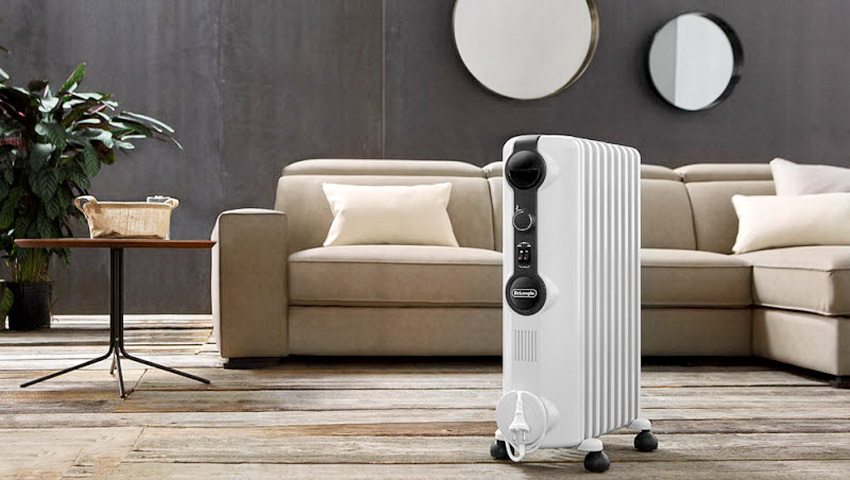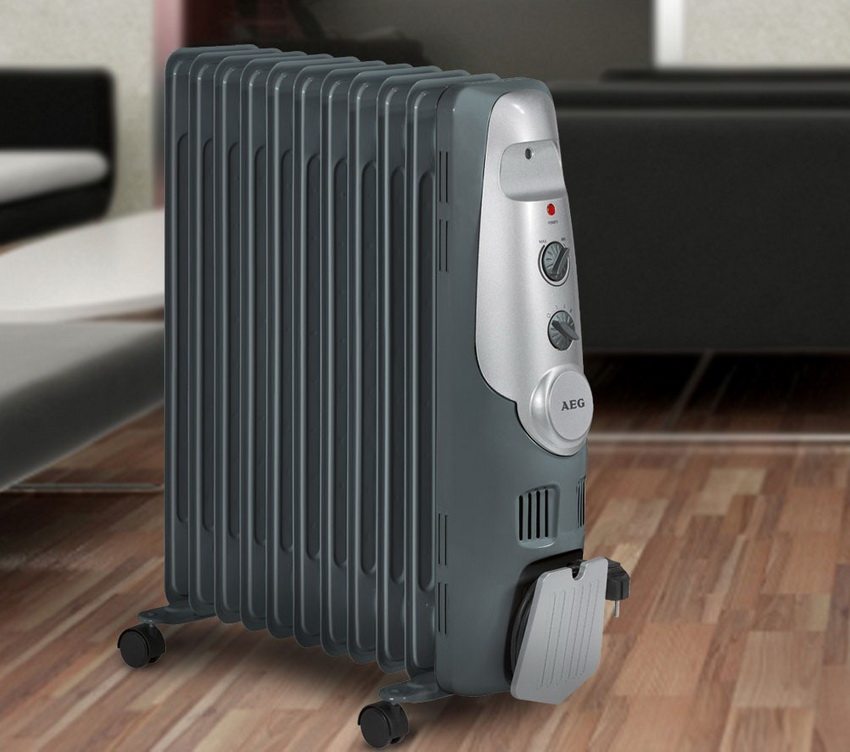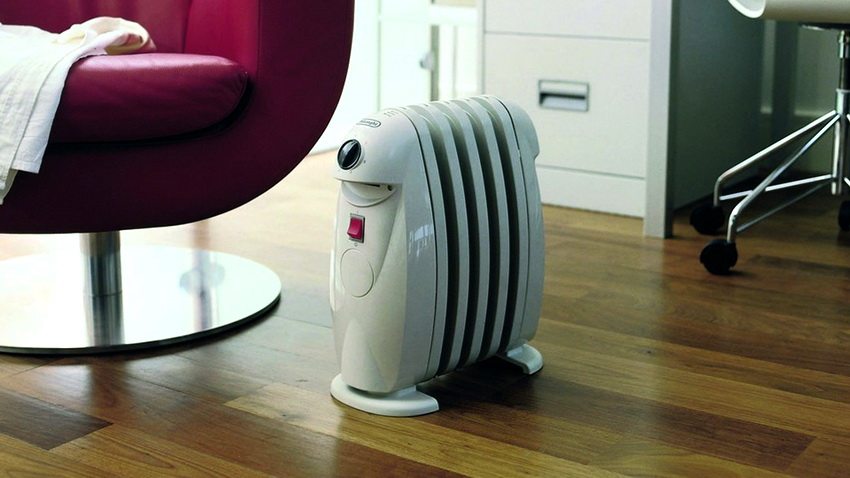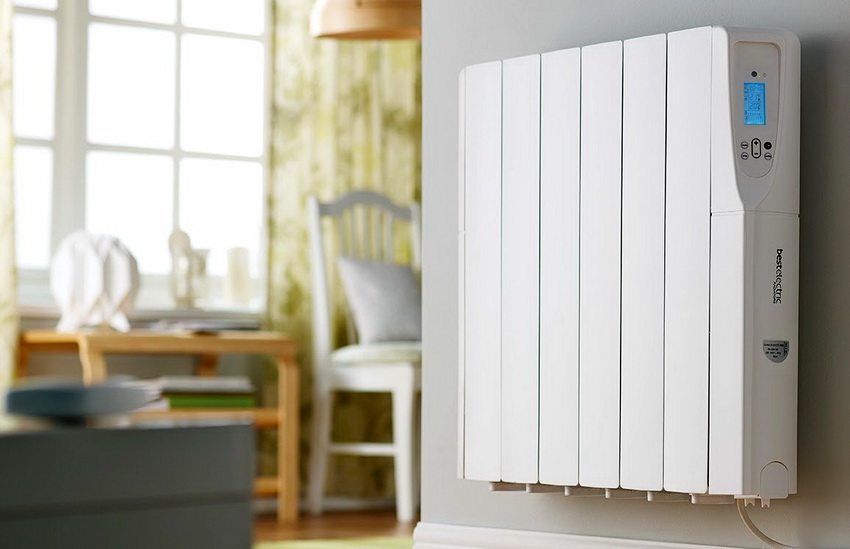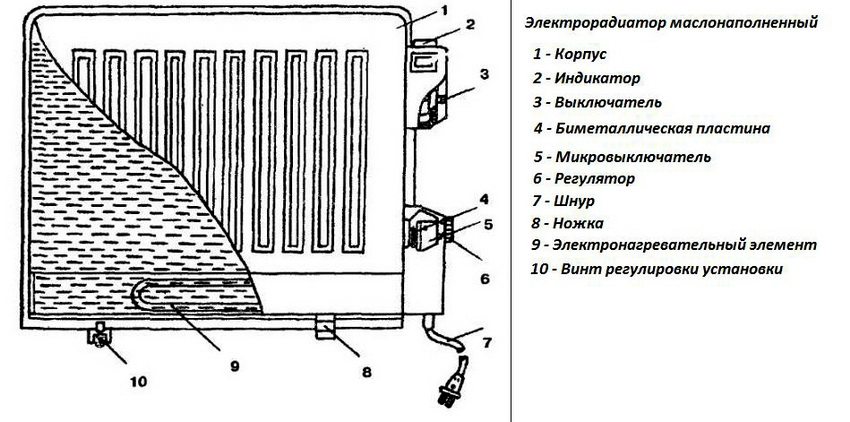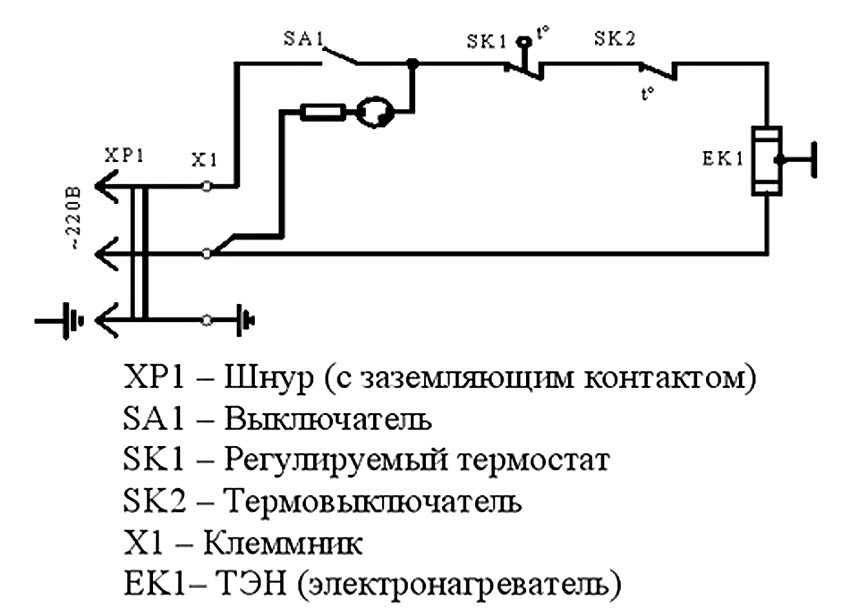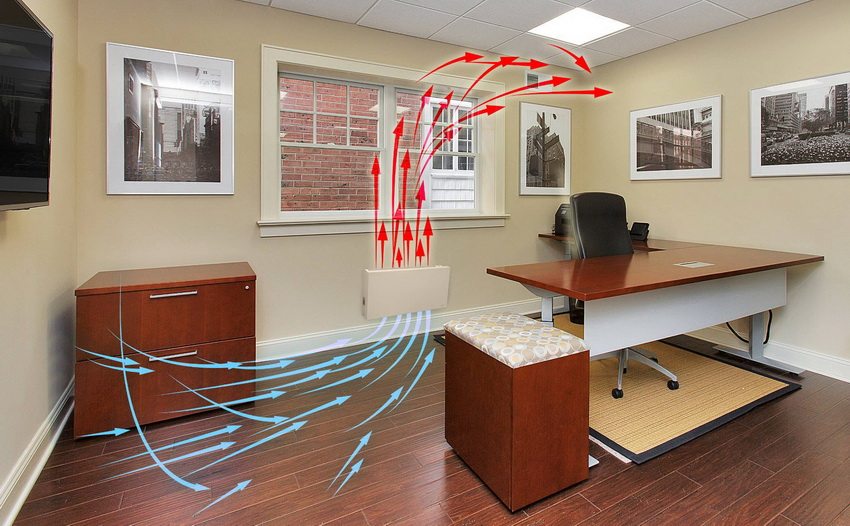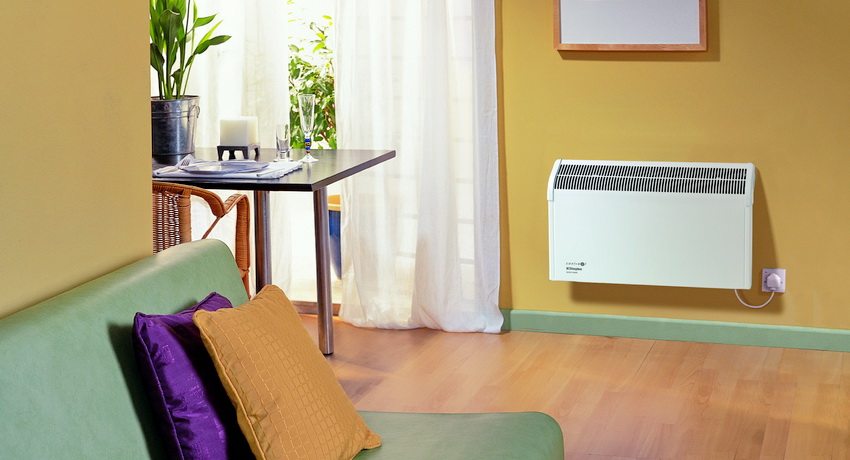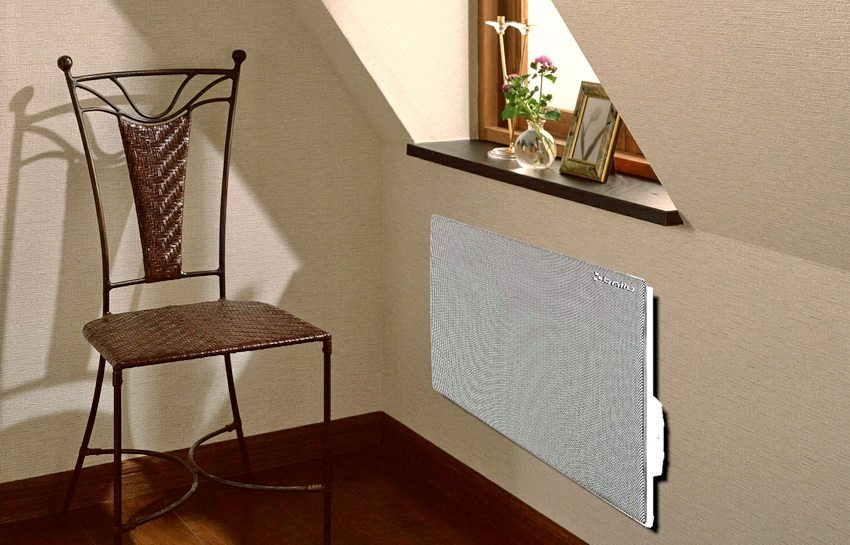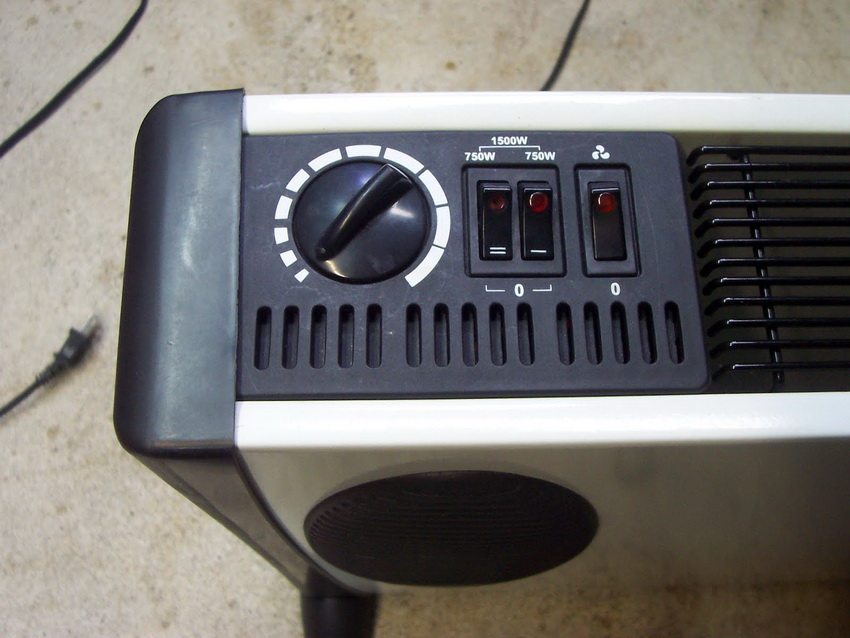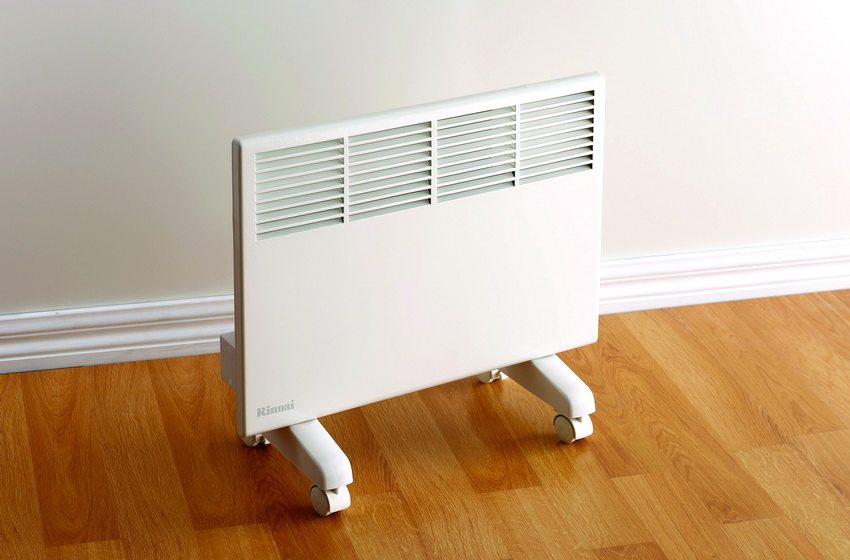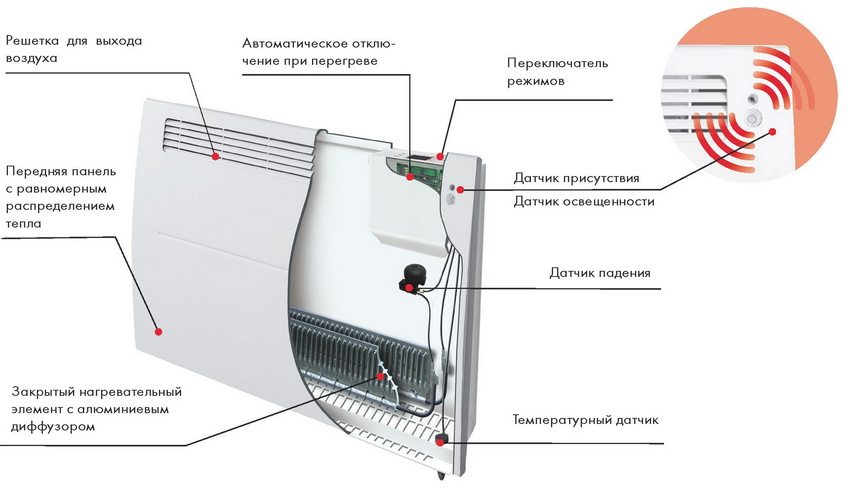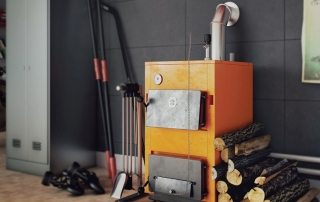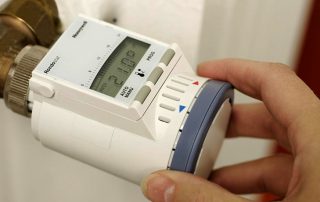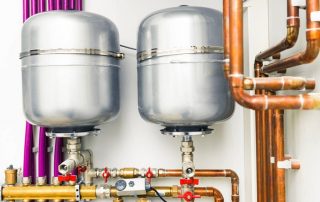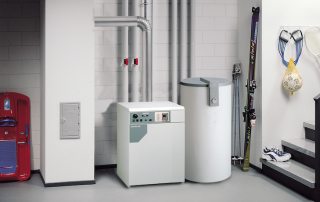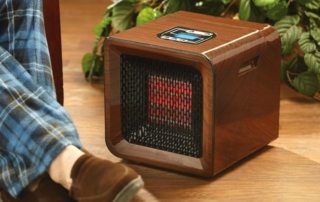Central heating is not always sufficient to provide a comfortable home environment. Therefore, it is often necessary to use additional heating devices. The most popular of them are a convector or an oil heater: which is better, you can decide by familiarizing yourself with the advantages and disadvantages of these devices, as well as the features of their use.
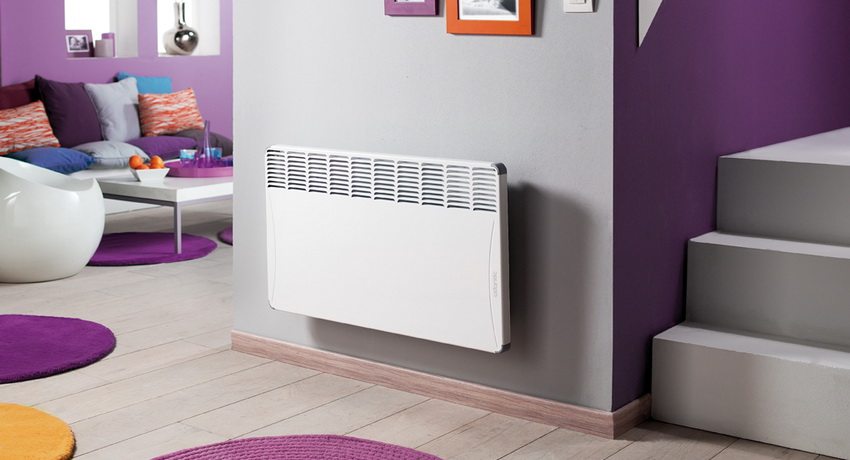
Heaters can be both the main and additional heat source
Content
- 1 Operating principle, pros and cons of oil heater
- 2 Types of oil heaters: wall and floor
- 3 Calculation of the power of an oil heater with and without fan
- 4 DIY oil heater
- 5 The device and principle of operation of convector heaters
- 6 Pros and cons of convector heaters
- 7 Prices of oil-fired electric heaters and convectors
- 8 Which heaters are better: oil or convector
- 9 Convector or oil heater: which is better to buy for home and office
Operating principle, pros and cons of oil heater
When choosing an oil heater for your home, you should understand how it works. Outwardly, it is a metal case, inside which there is a container with mineral oil. After turning on the device, the heating element starts working, which increases the oil temperature. The oil, in turn, heats up the metal body, and it gives off its heat to the environment. It takes quite a long amount of time, but the heat spreads evenly throughout the room.
The intensity of air heating in such radiatorsis generally adjustable and has castors for increased mobility. There are floor and wall oil heaters. It is advisable to buy the latter if there is a small child or pets in the house.
This heater works for periods. When the room temperature rises to the desired level, the built-in sensor turns off the heating element. When the temperature drops, the opposite process occurs. Thus, using an electric oil heating radiator saves energy.
The advantages of an oil cooler include the following:
- High level of safety - all heating elements are hidden inside the case, so you can not be afraid of getting burned on the oil heater. In addition, most models are equipped with a special sensor that turns off the device in the event of a rollover.
- Lack of noise during operation - you can safely install a household electric oil heater in your bedroom or office. Also, the device takes up little space, and it can be placed not only on the floor, but also on the wall.
- Long service life - the heating element of the oil cooler is reliable and durable, and the device itself can work for several days without interruption. Most modern models are equipped with built-in overheating protection.
- No unpleasant odor is emitted during operation. In addition, modern oil heaters (Delongy and other firms) do not dry out the air in the room, so you do not have to buy a complete set with the device humidifier.
- The price of the heater is quite low, so everyone can afford it.
As with any household appliance, the oil heater has its drawbacks. Among them are:
- The air in the room takes a long time to warm up, especially when it comes to a large room. This problem can be corrected by purchasing an oil heater with a fan: the heated air will spread faster.
- The structure itself weighs a lot, so it is better if the device is equipped with wheels. It is worth hanging an oil heater on the wall only if there are reliable fasteners.
Useful advice! When choosing an oil heater, pay attention to the manufacturer. As a rule, brand awareness guarantees the high quality of the heating device.
Types of oil heaters: wall and floor
Different models of heating devices may differ in power, size, appearance and other characteristics. For example, depending on the features of the location, such oil heaters are distinguished as:
- wall-mounted;
- outdoor;
- tabletop.
Using a wall-mounted model saves space, but also increases the time required to warm up the air in the room. The fact is that the heated air rises up, so the lower the heating device is located, the more efficiently it works. Because of this, oil heaters are often installed under windows.
Floor-standing options are the most mobile. They can be easily moved from room to room, removed during unused time. The schemes of floor-mounted and wall-mounted oil heaters practically do not differ from each other.
In addition, such heating devices can have a large number of additional functions and capabilities. These include, for example, a fan that blows warm air around the room, humidifier, which allows you to create a comfortable level of humidity in the room. And the best oil heaters are equipped with temperature sensors and can be programmed to turn on and off at specific times.
Calculation of the power of an oil heater with and without fan
The main criterion when choosing any heating device is its power. Therefore, before buying, it is worth measuring all the necessary parameters so as not to overpay, but also not to purchase an insufficiently powerful device. If your apartment has standard ceilings with a height of 2.75 m, then for heating every 10 m². you will need 1 kW of device power. With a different ceiling height, the heater power is calculated as follows:
- The length and width of the room is measured, its area is calculated.
- The resulting value is multiplied by the height of the ceilings, and its volume is obtained.
- The volume is divided by 25, since 1 kW of energy is needed per 25 m³.
The resulting figure will be the required power for your oil heater. The presence of a fan in the structure affects only the heating rate of the room, but not the required power.
DIY oil heater
If you want to save money, you can make an oil-type heating device yourself. To assemble an oil heater with your own hands, you only need a metal case. Heating element and oil. The answer to the question of which oil to use in oil heaters is purified and heat-resistant.
This is necessary so that scale does not form on the walls of the heating element, and the oil itself does not boil at high temperatures. If you need to know more precisely which oil can be poured into oil heaters and which one cannot, then you should turn to professionals.
Useful advice! An ordinary cast-iron battery can be used as a housing for a home-made heater. The material has good thermal conductivity, and inside such a case, you can easily install not only heating elements, but also a lot of other useful improvements.
The electrical circuit of an oil heater for self-assembly can be easily found on the Internet, and for greater efficiency, you need to choose the right heating element. It should be powerful enough, but without a magnesium anode, as it can quickly damage the heating element. Also, when assembling, it is necessary to understand the oil circulation pattern in the device.
To repair an oil heater with your own hands, you also need to understand the principle of operation of the device and the internal structure of the structure, as well as have special tools and skills, otherwise the repair may lead to more severe damage. If you are not confident in your abilities, then it is better to entrust this business to experienced specialists.
The device and principle of operation of convector heaters
Convector heaters are not inferior to oil heaters in terms of design simplicity. It also has a heating element that raises the air temperature. The very name of the device comes from the principle of convection, when warm air rises up and cold air goes down. It is thanks to this air circulation that the room is heated.
To the question of how convectors differ from oil heaters, the answer is very simple - in the first type, the heating element directly heats the air, and not the body of the device. This offers a number of advantages, for example, the body of the device does not heat up that much. According to the type of energy consumed, electric, gas and water convectors are distinguished, each of which has its own characteristics, but structurally and in terms of power they do not differ too much from each other. The most common are electric convector heaters.
There are also infrared convectors that use infrared radiation to heat the air. As a rule, the efficiency of such models is low, therefore it is best to use combined convective-infrared heaters. They will be able to quickly and evenly heat the air even in a large room.
Pros and cons of convector heaters
Unlike floor or wall mounted electric oil heater, convector does not heat the case, but immediately begins to warm up the air. This means that when using such a device, the room temperature rises much faster than when using an oil cooler. With the same power, an oil heater can warm up a large room for up to an hour, while a convector heater can handle it in a significantly shorter period of time.
Another advantage is that the body of a water, electric or gas convection heater practically does not heat up during operation, which eliminates the possibility of getting burned or damage to property.The use of such a heating device is completely safe, even if there are small children in the house. The body itself can be made of various materials with different levels of thermal conductivity.
Separately, it is worth noting the security systems of convector heaters. Almost every model has energy and temperature control, which can be carried out using an electronic or electromechanical thermostat. Also, many models have protection against high humidity, that is, they can be used not only in living rooms, but also in baths and other rooms with high levels of humidity.
There are few disadvantages of this heater:
- Uneven heating of air at different heights - when using a convector, the difference in air temperature at the floor and at the ceiling can be up to 9-10 ° C, since the heated air immediately rushes upwards, and the cold air remains below.
- Dust circulates with the air, therefore it is not recommended to use the device in dusty rooms.
- It is possible to install convectors on the wall or near the ceiling, but this makes little sense, since in such cases the temperature difference at different heights will be even greater.
Useful advice! The use of an infrared convector heater can somewhat reduce these disadvantages, but such models are characterized by a lower operating power.
Prices of oil-fired electric heaters and convectors
The price category of a heating device depends on its power, manufacturer, availability of additional functions and other characteristics. The price of a low-power oil household electric heater will be about 2,500 rubles. The cost of more powerful models is in the range of 3-4 thousand rubles. The heating area and the number of sections affect the price of the device.
When choosing a convector, you must also pay attention to the power and manufacturer. Here the price can vary from 1,500 to 4,500 rubles. Infrared models are cheaper, you can buy such a heater for 1000 rubles or less.
If you want to buy a Delongy oil heater, then be prepared for serious expenses, since the products of a famous brand are more expensive. If you do not want to overpay for a trademark, then you can turn your attention to heating devices from less well-known companies.
Which heaters are better: oil or convector
To fully understand which is better, convector or oil heaters, you need to compare their main characteristics with each other:
- time of heating the air in the room. In the oil cooler, the heating element is first heated, then it heats the oil, which gives off heat to the body, which already begins to heat the air. In the convector, the air is heated immediately. It should be understood that if you are going to buy an electric oil heater with a fan, then it will warm up the air at the same speed as the convector, or even faster. This is due to the relatively low power of the convector heater;
- electricity consumption. In this regard, the convector is about a quarter more economical than an oil cooler of the same power. This factor can be decisive, since the solid energy consumption of an oil device can cost a pretty penny;
- ease of installation and operation. Convectors weigh several times less than bulky oil appliances, therefore it is much more convenient to move them from place to place. In addition, they are easier to mount on the wall, although this reduces work efficiency.Modern models of both types of devices are equipped with sensors, simple and understandable controls and displays, so that the level of ease of use is approximately the same and largely depends on the manufacturer and model;
- safety of use. The answer to the question which oil heaters are better may well be those that heat up less during operation. Hot oil noticeably heats the body, but convectors in this regard are completely safe. You can easily leave such a device turned on unattended, while it is highly discouraged to do this with oil;
- environmental friendliness and safety for health. Oil or convector heaters do not have parts in their design that could burn oxygen, therefore, in this regard, both types are completely safe. When the convector is in operation, dust can circulate in the room, which does not happen when the oil heater is operating. But here a lot also depends on the cleanliness of the room;
- durability. Convector heaters last much longer than oil heaters, and they are much easier to repair. One of the most common causes of a breakdown in an oil cooler can be the appearance of microcracks, through which oil flows out and evaporates. Repair in such cases is very difficult or simply impossible;
- cost. Oil radiators are cheaper than convectors of the same power, but in terms of the set of performance characteristics they are significantly inferior to them, so the savings can be very doubtful.
In addition to the characteristics already listed, it is worth noting that the improvement of convector heating devices is much faster than oil ones, which are slowly but surely disappearing from the market. The newest invention in this regard is the monolithic heating element of the convector, which doubles the heat output of the device with the same electricity consumption.
In addition, when choosing a convector or an oil heater, the degrees of protection must be taken into account, and according to this characteristic, the latter clearly loses. A rare convector is not equipped with protection against overheating, voltage surges and overturning. While often there are oil coolers without protection at all.
Convector or oil heater: which is better to buy for home and office
Considering all the characteristics considered, we can say that convector-type heating devices have more advantages than oil ones. But this does not mean that the latter have completely surrendered their positions and are not used anywhere. Radiators with oil as a heat transfer medium are cheaper than other types of heaters, which still makes them very popular. Also, an oil cooler can be effectively used where fast air heating is not needed, but its uniformity is appreciated. And models with a built-in fan can warm up the room even faster than a convector.
When choosing a heater model for your apartment or office, consider the totality of its characteristics, the manufacturer's reputation and other factors. A good oil cooler will be more efficient than a poor quality convector. Reviews also play an important role in the selection. Which is better, oil heaters or convectors of one type or another, you can find out from the reactions of users on the Internet.
